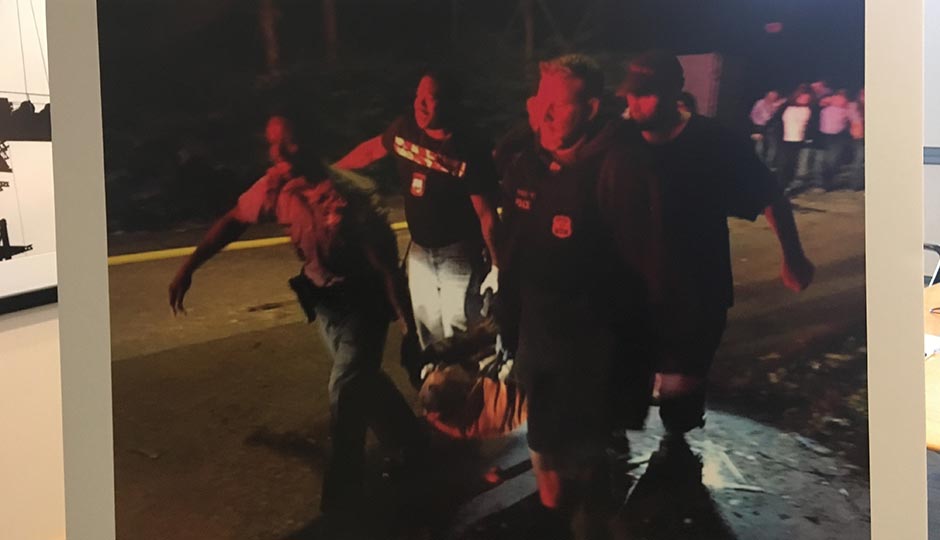First Car Passenger Robert Hewett Recounts Surviving Crash of Amtrak 188

Amtrak 188 survivor Bob Hewett. Photo | Mariam Dembele
The Amtrak 188 train derailment happened one year ago today. Survivor Robert Hewett has relived it every day since.
“Every breath I take, I think about it, I have a lot of terrible sleeping at night, if it’s not various pain, it’s my mind just replaying the crash,” said Hewett, 58, a security official for BASF, at a press conference held at the law firm representing him on the anniversary of the Amtrak 188 train derailment that killed eight people and injured more than 200.
Hewett can tell you details about the crash as if it were yesterday. He was in the first car of the train. At the time, he was texting his wife about possible vacation destinations. He recalls feeling as if the train was going too fast. He remembers being thrown from his seat, hitting the ceiling, luggage racks and seats. The last thing he remembers before losing consciousness is crashing head-first into another passenger. He awoke lying on a pile of rocks with his clothes torn off, unable to move his legs or see out of his right eye.
“Fires were starting. I couldn’t move, I couldn’t get away, I started yelling for help,” Hewett recounted as he held back tears. “When the first responders did arrive on scene, one of them shined his flashlight on my head and yelled for help. I remember him saying, ‘This guy’s got to go now, the whole back of his head’s coming off.’ They rounded up a few people to carry me out, and I couldn’t see anything, I could only hear voices after that.”

The Hewett family believes Robert is the victim in this photo from the aftermath of the crash of Train 188. Photo | Mariam Dembele
Among his injures were multiple fractures to his rib cage and a collapsed lung — they still impede his ability to breathe now, he says. He spent seven weeks in a medically induced coma at Hahnemann Hospital and another seven weeks at a rehabilitation center, racking up, he says, a total of $1.4 million in medical bills. Since the crash, Hewett and his family’s lives have been thrown upside now. Their days are marked by doctor’s appointments and seemingly endless medical complications caused by the initial injuries. The vacations they had once been planning are now unimaginable.
Hewett’s wife, Judy, recalls that in February Bob unexpectedly got violently ill. They took him to the emergency room and discovered that a tear in his diaphragm caused from the crash had gotten wider causing his stomach to herniate into his chest.
Despite all he continues to endure, Hewett said he’s grateful to be alive, knowing that it so easily could have ended differently. His goal today is to meet the first responders that had helped him and thank them, an idea that was prompted by his 15-year-old daughter Emily.
“Without them finding him so quickly and them doing all they did, he wouldn’t be here,” said Emily. She said she wants responders to see how far he’s come since that day. “I’m sure they probably thought that he didn’t really have a chance when they found him.”
“I want to say thank you,” said Hewett as tears spilled over. “I don’t know what else to say. I’m just very grateful.”
Follow @MariamDembele on Twitter.


